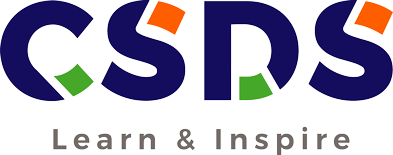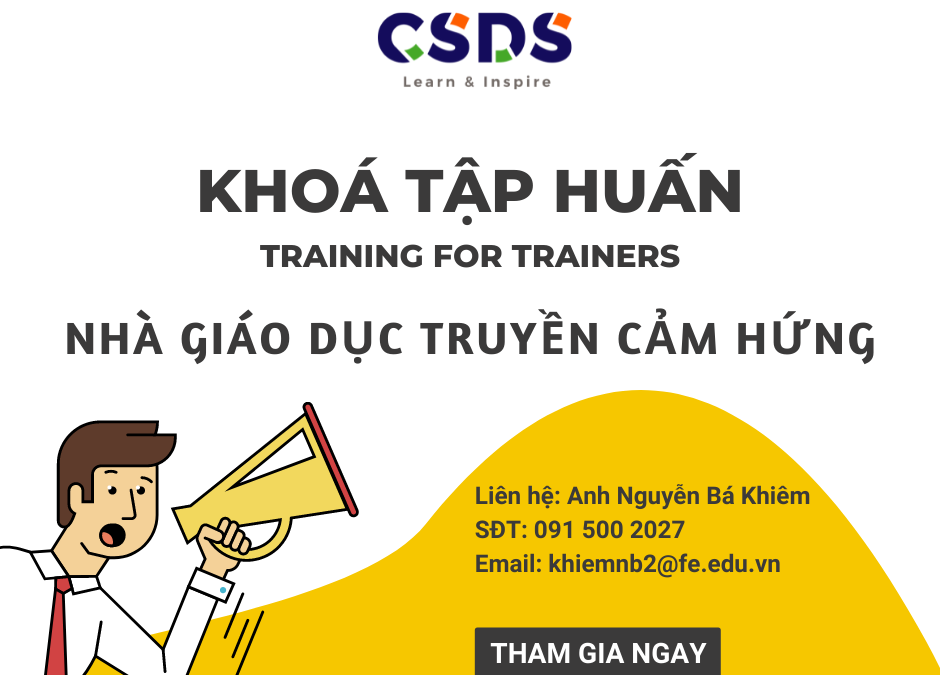Experiential Learning
Experiential learning is designed to involve students’ participation and contribution to the learning process. The approach of this method is to build learning activities through experiences, activities and active learning from participants. Rather than telling people what they need to do, facilitators engage them through active participation in activities, games, and real-life experiences of the participants. By asking the right questions, facilitators encourage participants to reflect on themselves after each activity, so they can share their own lessons and apply those new insights to real life.
Children’s learning in the traditional way, especially in children’s education, gravitates towards the transmission of knowledge by teachers. Adult learning is a process by which teachers provide opportunities for students to acquire knowledge, skills, and attitudes/perceptions. Adults are used to practicing, experimenting with options; They ask for more choices on issues that they will believe, accept and apply. For this reason, experiential learning has many advantages over the traditional classroom-style approach, experiential learning is more effective especially in training subjects based on project-based learning.
The role of the Facilitator
Based on the “Learning through experience” method, the course is designed to help the training courses be carried out “closer to life”, and learners can gain a sense that their experiences and expertise are used as teaching material, thereby contributing to the success of the course.
For facilitators, using this approach requires a shift from the concept of “trainers” to “facilitators”. It is a shift from comparing the training as “pouring knowledge into empty vessels” in which the specialist knowledge of the trainer remains central, to a new image of the facilitator, who will act as an initiator, facilitator, and motivator to facilitate self-study by guiding them through the steps of their natural learning cycle.
Coaching plays an important role in this process. There is an African proverb that says, “Let’s teach how to fish instead of just giving the fish”. Coaching is not about giving advice. The core goal of this training is to enhance your motivational and coaching abilities so that you can help your students grow and also help yourself.
Target audience
- Teachers who are teaching subjects based on the project-based learning approach and want to apply new methods
- Students, club leaders, and team leaders who wish to pursue becoming a facilitator to improve their team’s capacity
- Those who do the training with the communication style and want to apply new methods.
Contents of the training course
The 2-day training course will provide very practical models that you can directly apply in your daily work and motivate you to really take action to get there.
- Experiential Learning: Why and in what contexts can you apply experiential learning? What are the steps of this approach and what is the role of the facilitator in each step?
- Deep Listening Skills: Deep listening is considered an extremely important skill in coordination. It will help facilitators not only listen to information, catch keywords from participants’ sharings, but also feel emerging trends.
- Basic knowledge of coaching: From “telling others what to do” to asking questions to arouse students’ creativity and independence with ‘responsibility.’
Learning goals
After the training course, participants will achieve to:
- Self-organize a training program using the learning-through-experience method
- Use questioning and listening skills in training activities as well as in life
- Understand the role and work of a facilitator
- Increase confidence, empathy and communication ability when working with people
Registration time and process:
- 2 days online (4 sessions) via Zoom: 08 – 09/01/2022 (Saturday, Sunday)
- Morning: 8:30 – 11:30, Afternoon: 14:00 – 17:00
- Number: Up to 30 people
- Link: Here
- Deadline: 11:00 pm on Sunday, 1/2/2022
For questions about the training course and registration process, please contact:
Mr. Nguyen Ba Khiem (IC PDP): 091 500 2027
Email: khiemnb2@fe.edu.vn

